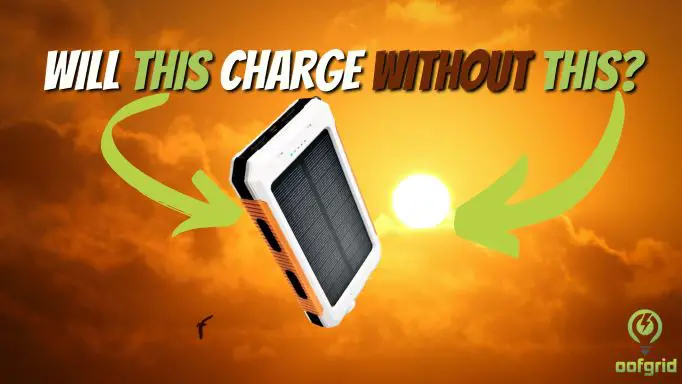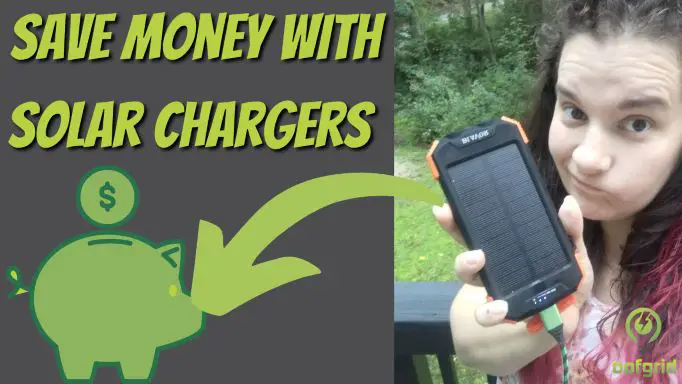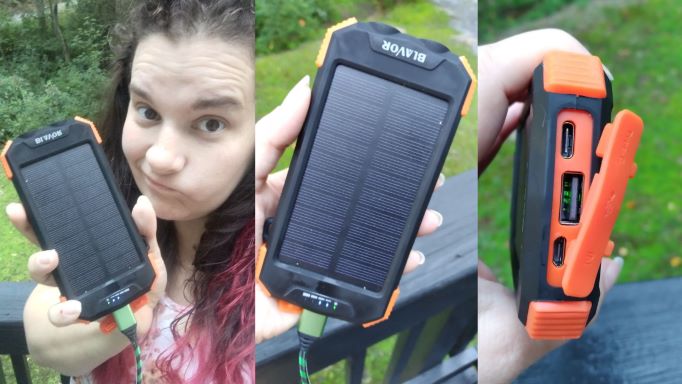A new generator can make a huge difference in giving you freedom in how you supply your devices with power. If you are in the market for a new generator but are concerned with the effect they might have on the environment, do not worry as there are eco-friendly options available to you.
In this article, we will go over some of the differences between generators, features of eco-generators, and some recommendations of generators to buy.
But before we start if you’re in a hurry and just want to see the Best Eco-Friendly Generators ( Our Opinion ) we have listed them here:






Last update on 2025-05-17 / Affiliate links / Images from Amazon Product Advertising API
Contents
Regular Portable Generators vs Eco-Friendly Generators?
There are a number of different ways in which a portable generator could be considered eco-friendly. Some generators are eco-friendly in the sense that they use fuels that produce lower carbon emissions whilst others can harness solar energy to bring down fuel consumption.
Natural Gas Generators
You may have noticed when browsing a list of generators to possibly buy, that some of them were designated as hybrid type generators. These generators have the capacity to run normal fuels like petrol or diesel as well as natural gases such as propane.
Recently, this type of generator has become more prevalent due to the ecological benefits it provides.
In terms of environmental impact, natural gasses have a much more positive impact than traditional fossil fuels. For example, natural gasses will burn much more cleanly and produce far lower carbon emissions.
Another potential benefit will arise in any scenario in which you are using your generator for within your home. As most houses will have a gas supply through piping, you can hook your generator up to them for an uninterrupted supply of fuel.
Storms or flooding should not be able to knock out the gas supply as it’s buried underground in the same way it could knock out your electricity, so you can keep powered on throughout.
Our Choices for Dual Fuel Gens
- 9500 Running Watts and 12500 Peak Watts (Gasoline); 8500 Running Watts, 11200 Peak Watts (Propane); Remote Start With Included Key Fob, Electric and Recoil Start; Up to 12 Hours of Run Time on a 6. 6 Gallon Fuel Tank With Fuel Gauge
- Features Two GFCI 120V 5–20R Standard Household Receptacle, One Transfer Switch Ready 120V L14-30R, and One RV Ready 120/240V 14–50R; All Outlets Have Rubber Covers for Added Safety
- Powered by a Heavy Duty 457cc Westinghouse 4-Stroke OHV Engine Featuring a Long-Lasting Cast Iron Sleeve With Automatic Low Oil Shutdown and Digital Hour Meter
- Plug-and-Play: Comes With a Remote Start Key Fob, 12V Battery Charger, Oil, an Oil Funnel, a Tool Kit, and a User’s Manual to Get You Started Right Out of the Box (Minimal Assembly Required)
- All Westinghouse Portable Generators are Functionally Tested in the Factory and May Contain Minimum Residual Oil and/or Fuel Odor; EPA and CARB Compliant; Backed by 3-Year Limited Service, Labor, and Parts Coverage with Nationwide Customer Service and Support Network at 1-855-944-3571 or service@wpowereq
- Your purchase includes One DuroMax XP5500EH 5000 watt Dual Fuel Hybrid generator with Electric Start, One oil funnel, One spark plug wrench, tools set, wheels and handle kit, DC charging cables and owner’s manual
- Portable Generator dimensions: 24” L x 17 W x 17 H. Product weight: 127 lbs
- Specifications: Noise level – 69 dB. Fuel tank capacity (GASOLINE) – 3.96 gallons. Suggested tank size (PROPANE) – 20 gallons
- The ability to run on Propane or Gasoline allows the Freedom and Flexibility of Fuel Choice.Horsepower (hp):7.5
- With 5,500 starting watts and 4,500 running watts, this unit can handle heavy loads from lights and a refrigerator to a home air conditioner and high amperage power tools. Operate at both 120 V and 240 V simultaneously, or at 120 only with full po
One other key difference that could be important to you is that natural gas is both safer to transport and safer when using it as fuel for your generator. When you move regular fuels (usually stored within a can or a bottle) there can be a risk of spillages and can pose a fire risk, as they are extremely easy to light up.

This same risk also reappears when you transfer the fuel from its container and into the fuel tank of the generator. Natural gasses, such as propane, are stored in a sealed container and will connect directly to the generator via a pipe. As such, this risk of spillages is removed and the task of transferring fuel from the container to the generator is removed also.
Due to the fact that natural gas generators function almost identically to regular portable generators (the only exception being that they can use natural gas), these are usually the most common kind of eco-friendly generator.
Solar/Inverter Generators
Another type of eco-friendly generator would be the use solar, or photovoltaic, panels along with an inverter and batteries to allow your generator to provide power. The impact on the environment that an inverter generator has can be a bit confusing to figure out.
Whilst the operation of the generator has no impact on the environment, the production of the batteries and solar panels can does in fact have an environmental footprint that is quite significant.
This means that whilst running your generator is most definitely eco-friendly, the production of the generator itself is not.
Having said that, an inverter generator is still an eco-friendly option for providing power. However, you may find that it can provide some headaches when it comes to actually using it. As it harnesses solar energy, when you are trying to charge your generator in conditions with low light levels you won’t be getting great results.
Our Picks for Solar or Battery Powered Gnes
- Founded in California in 2012, Jackery specializes in providing outdoor green power solutions for explorers. Jackery portable power station, power outdoors.
- VERSATILE OUTDOOR POWER SUPPLY: featuring standard PURE SINE WAVE AC outlet this Jackery Explorer 500 portable power station provides stable power to a wide range of AC-relied devices from TVs, projectors to small blenders, a pellet smoker, etc. which rated under 500 watt(surge 1000W). Standard 12V/10A carport and 3*5V/2.4A USB ports power/charge all your car appliances and small electronic devices like car coolers, air pumps, car vacuums, laptops, phones. Enjoy a camping party like no others.
- PORTABLE POWER STATION RECHARGED ANYWHERE: can be quickly (1)recharged under the sun with Jackery SolarSaga 100W Solar panel (Sold Separately) within 9.5 hrs (in full sun) while living outdoors; (2)recharged from a carport within 16 hrs while on-the-road/off-road (charging cable included); (3)or recharged from an AC wall outlet within 7.5 hrs (charging cable included).
- SAFETY: (1)PURE SINE WAVE INVERTER ensures safely powering sensitive devices like laptops etc. without damages,meanwhile reduces audible and electrical noise; (2)BMS SYSTEM managing over-voltage protection, over-current protection, over-temperature protection, etc. safeguarding you and your devices during usa
- 222Wh Back-up Power Supply: Wide applications make it suitable for lots of devices; 110V AC outlets can charge your CPAP machine, tablet, laptop, TV, fan, Christmas lights etc; 2 * 12V DC Ports can be used for car vacuum, car refrigerator, car air fan and car charger etc; 2* QC3.0 USB and 1 * 2.4A USB ports can charge your phones, drones, iPad, GPS, mp3, camera, etc.
- Cool Features: The silver case is metal and the black ends are plastic, more durable than other soalr generators.With 300W continuous power, 350W peak power, 60000mAh battery capacity and pure sine wave, this power generator can charge your devices more stably;5.6lb light weight makes it perfectly fit in your backpack. Key Product Features.
- Recharge Solar Generator: The battery pack can be recharged from the sun with a solar panel (NOT INCLUDED); can be fully charged by being plugged into the wall outlet; and it can also be charged by plugging into your car 12V socket (car charger included).KINDLY NOTE THAT THE POWER STATION CAN NOT BE CHARGE AND USE AT THE SAME TIME.
- Safety Warranty: Built-in multi safety protections like short-circuit protection, low-voltage protection, overheat protection, lock-on protection, over-voltage protection and over-current protection. THE LABEL INDICATED ON THE ITEM SHOWS 20Ah (20000mAh), PLEASE KINDLY NOTE THAT THIS IS NOT THE TOTAL CAPACITY. THE 300W SOLAR GENERATOR BUILDS INTO 3 LITHIUM BATTERIES, EACH ONE IS 20000mAh, SO THE TOTAL CAPACITY OF FLASHFISH G300 IS 60000mAh.
- Enjoy Outdoor Activities: Our generator has an easy-to-carry handle, convenient for camping, fishing, travelling, other outdoor activities and emergency usage. Eliminate your worry about no electricity in your devices and power outage at ho
Due to this, you will need a battery bank to store the electricity generated when the weather conditions allow more sun to shine through. If you were to be using your inverter generator for multiple days with low light levels, you would need a lot of battery storage in order to keep the power on.
If you can afford to splash out on a lot of batteries then this would be an adequate solution but even still you would face the problem of actually transporting the batteries and setting up extra panels, a difficult task if you live in a remote area for instance.
What would be the key benefit of solar power is that the electricity it provides is free after the initial start up cost. This means that over time it would technically pay itself off. Some states will even offer you financial incentives for people who run renewable energy sources such as solar.
What is Considered Eco-Friendly?
The phrase “eco-friendly” can be a bit of blanket terms, but what it essentially boils down to (in this instance) a product that has a significantly reduced environmental impact than that of other similar products.
So, when we are talking about generators, this could be something as simple as having an “eco-mode”. Some generators have settings that will allow you to conserve fuel when you are under a maximum load by changing the RPM of the generator to only provide the power need for the current application.
Whilst this setting is eco-friendly, the usual usage of the generator would not be and so whilst the setting would help lower the carbon impact the generator itself would not be considered eco-friendly.
What would be considered eco-friendly would be a generator built from the ground up with the intention of providing a cleaner source of energy with a lowered carbon emission and footprint.
The generators we talked about earlier, inverter and natural gas, would be considered eco-friendly as every aspect of their design is to provide you with an alternate source of power that is less impactful on the environment.
Are Eco-Friendly Generators Less Powerful?
Depending on the type of eco-friendly generator you are looking at they can be either more or less powerful than a standard portable generator. This power output will also change based on circumstance, especially where the solar-powered generators are concerned.
If you were to use a natural gas generator the power output should not really be that different to your usual portable generator. In principle it works almost the same way, by combusting fuel to power your generators motor and convert it into electricity.
Depending on the quality of the generator you may find it could even work better but this is less to do with the fuel and more the build of the generator itself.
Now, when we consider how powerful a solar powered/inverter generator this will usually be less powerful. This could be from the weather conditions being cloudy, and so the total power it can draw is less, or it could be from the fact that you need a lot of batteries to store the same amount of power as you get from another kind of generator.
Technically you could store the same amount of power, however, it would be significantly more expensive and most likely take up more space. So, all in all, the overall power output of a solar-powered generator will most likely be less.
In Summary
To conclude, there are great options when it comes to eco-friendly portable generators that can use both natural gas and solar power to provide you with power for whatever you might need. Hopefully, this article was helpful in giving you some information on the different kinds of eco generators and which one is best for you.






